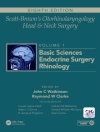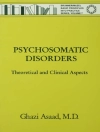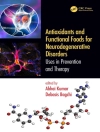This book presents a comprehensive overview and outlook for the future of indocyanine green (ICG) fluorescence navigation surgery, which is attracting clinical interest as a safe and less invasive procedure not only in detecting cerebral vessels, coronary arteries, and biliary trees, but also in identifying sentinel lymph nodes in cancer. The book starts with the characteristics of ICG and photodynamic cameras/endoscopes, followed by detailed descriptions of the applications of ICG fluorescence imaging in various areas such as ocular surgery, neurosurgery, cardiovascular surgery, and plastic surgery. It also covers identifying sentinel lymph nodes in breast cancer as well as cancers of the gastrointestinal tract, and provides valuable information for hepato-biliary-pancreatic surgeons, such as identifying tattooing of liver segments and bile leakage. Written entirely by experts in their respective areas, ICG Fluorescence Imaging and Navigation Surgery offers an essential resource for surgeons operating on cancers and vascular disorders in the brain and cardiovascular systems and in plastic surgery.
Spis treści
Part I Basis of ICG Fluorescence Method.- Chapter 1 Photodynamic Characteristics of ICG Fluorescence Imaging.- Chapter 2 Indocyanine Green Fluorescence Properties.- Chapter 3 Classical Signaling Pathways.- Chapter 4 Characteristics of the Photodynamic Eye Camera.- Part II Neurosurgery.- Chapter 5 ICG Video-Angiography in Neurosurgical Procedures.- Part III Head and Neck Surgery.- Chapter 6 ICG Fluorescent Image-Guided Surgery in Head and Neck Cancer.- Part IV Cardiovascular Surgery.- Chapter 7 An Innovative SPY Intraoperative Imaging and Validation Technologies for Coronary Artery Bypass Grafting.- Chapter 8 Application of an Angiographic Blood Flow Evaluation Technique in C
ardiovascular Surgery Using the Hyper Eye Medical System.- Part V Sentinel Node Navigation Surgery and Other Applications for Gastrointestinal Tract Cancers.- Chapter 9 Principle and Development of ICG Method.- Chapter 10 Practice of Fluorescence Navigation Surgery Using Indocyanine Green for Sentinel Lymph Node Biopsy in Breast Cancer.- Chapter 11 A Perspective on Current Status and Future Directions of Sentinel Node Biopsy Using Fluorescence Imaging System in Breast Cancer.- Chapter 12 Indocyanine Green Fluorescence Axillary Reverse Mapping for Sentinel Node Navigation Surgery in Breast Cancer.- Chapter 13 A New Concept for Axillary Treatment of Primary Breast Cancer using Indocyanine Green Fluorescence Imaging.- Chapter 14 Function-Preserving Curative Gastrectomy Guided by ICG Fluorescence Imaging for Early Gastric Cancer.- Chapter 15 Fluorescent Navigation Surgery for Gastrointestinal Tract Cancers: Detection of Sentinel Nodes, Tumor Tattooing and Harvesting of Lymph Nodes.- Chapter 16 Sentinel Node Navigation Surgery for Rectal Cancer – Indications for Lateral Pelvic Lymph Node Dissection -.- Chapter 17 Indocyanine Green Fluorescence-Navigated Sentinel lymph node navigation surgery (SNNS) for skin cancers ( in cutaneous malignant melanoma and extramammary Paget’s disease).- Chapter 18 Regional Lymph Node Dissection Assisted by Indocyanine Green Fluorescence Lymphography and Angiography for Stage III Melanoma.- Part VI Assessment of Blood Supply to Tissue & Reconstructed Organ with Application of Plastic Surgery.- Chapter 19 Blood Supply Visualization for Reconstruction During Esophagectomy.- Chapter 20 Evaluation of Viability of Reconstruction Organs During Esophageal Reconstruction.- Chapter 21 ICG Fluorescence Navigation Surgery in Breast Reconstruction with TRAM Flaps.- Chapter 22 Intraoperative Evaluation of Flap Circulation by ICG Fluorescence Angiography in the Breast Reconstruction with Pedicled TRAM Frap.- Chapter 23 Pre- and Intraoperative Identification of Perforator Vessels Using MRA/MDCTA, Doppler Sonography, and ICG Fluorescence Angiography.- Chapter 24 Intraoperative Assessment of Intestinal Perfusion Using Indocyanine Green Fluorescence Angiography (ICG-AG) During Pediatric Surgery.- Part VII Hepato-Pancreatic-Biliary Surgery.- Chapter 25 Basic Aspects of ICG Fluorescence Imaging of the Liver.- Chapter 26 Intraoperative Liver Segmentation Using Indocyanine Green Fluorescent Imaging.- Chapter 27 Liver Parenchymal Staining Using Fusion ICG Fluorescence Imaging.- Chapter 28 Anatomical Hepatectomy Using Indocyanine Green Fluorescent Imaging and Needle-Guiding Technique.- Chapter 29 Microscopic Findings of Fluorescence of Liver Cancers.- Chapter 30 Intraoperative Detection of Hepatocellular Carcinoma Using Indocyanine Green Fluorescence Imaging.- Chapter 31 Laparoscopic Intraoperative Identification of Liver Tumors by Fluorescence Imaging.- Chapter 32 Application of Indocyanine Green Fluorescence Imaging to Pediatric Hepatoblastoma Surgery.- Chapter 33 Indocyanine Green Related Transporters in Hepatocellular Carcinoma.- Chapter 34 Liver Transplantation guided by ICG-fluorescence imaging: assessment of hepatic vessel reconstruction.- Chapter 35 Fluorescence Imaging for Intraoperative Identification of Pancreatic leak.- Chapter 36 Intraoperative Indocyanine Green Fluorescent Imaging for Prevention of Bile Leakage after Hepatic Resection.- Chapter 37 ICG Fluorescence Cholangiography During Laparoscopic Cholecystectomy.- Chapter 38 Usefulness of ICG Fluorescence Imaging in Laparoscopic Liver resection.- Part VIII Surgery for Lymphedema.- Chapter 39 Detection of Hepatic Micrometastases from Pancreatic Cancer.- Chapter 40 Superficial Lymph Flow of the Upper Limbs Observed by an Indocyanine Green Fluorescence Method: Lymph Flow in Healthy Persons and Patients with Breast Cancer-Related Lymphedema.- Chapter 41 Indocyanine Green Fluorescent Lymphography and Microsurgical Lymphaticovenous Anastomosis.- Chapter 42 Comprehensive Lymphedema Evaluation Using Dynamic ICG Lymphography.- Chapter 43 Lymphatic Pumping Pressure in the Legs and Its Association with Aging, Edema, and Quality of Life.- Chapter 44 ICG Fluorescence Lymphography for Confirming Mid- to Long-Term Patency of Lymphatic Venous Side-to-End Anastomosis in the Treatment of Peripheral Lymphedema.O autorze
Mitsuo Kusano
Director, Seiwa Memorial Hospital, Sapporo, Japan
Norihiro Kokudo
Professor and Chairman, Hepato-Biliary-Pancreatic Surgery Division,
Artificial Organ and Transplantation Division,
Department of Surgery, Graduate School of Medicine,
University of Tokyo, Tokyo, Japan
Masakazu Toi
Professor, Department of Breast Surgery, Graduate School of Medicine, Kyoto University, Kyoto, Japan
Masaki Kaibori
Associate Professor, Department of Surgery, Hirakata Hospital, Kansai Medical University, Hirakata, Japan












